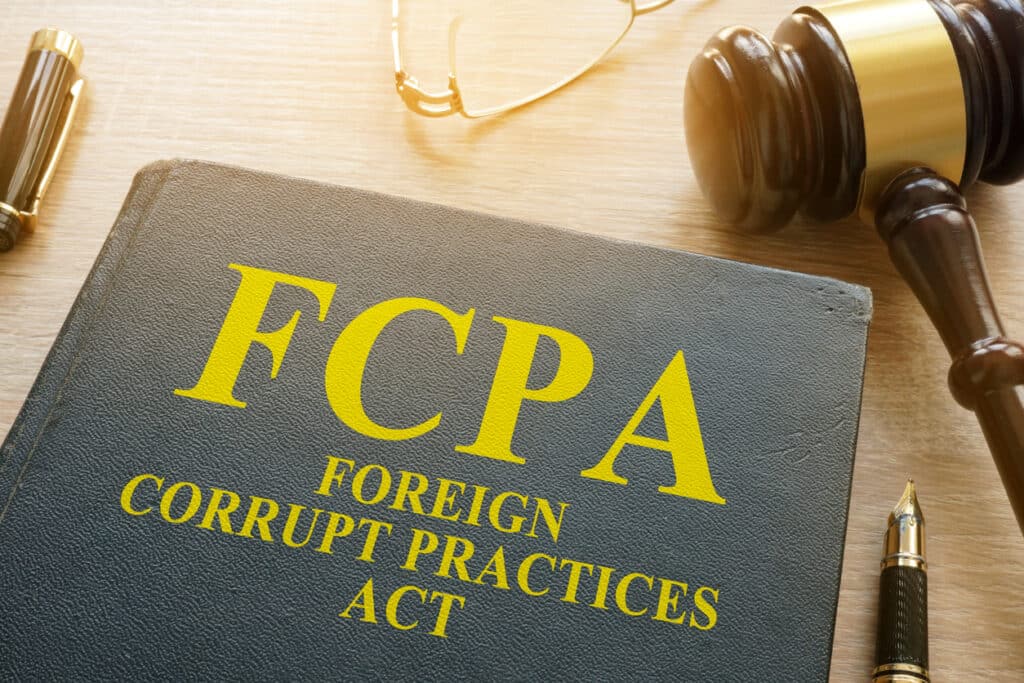The Trump administration’s overhaul of the United States’ enforcement of the Foreign Corrupt Practices Act (FCPA) could have a significant impact on the global enforcement of transnational corruption. In contrast to the administration’s stated intent to give U.S. businesses a competitive edge, the newly issued Department of Justice (DOJ) guidelines may reduce American influence and expose U.S. companies to aggressive foreign prosecution.
On February 10, 2025, President Trump signed Executive Order 14209, which paused enforcement of the FCPA and directed the Department of Justice (DOJ) to issue updated FCPA enforcement guidelines. The move was characterized as bolstering “American economic competitiveness with respect to other nations.” Even though a majority of FCPA-related enforcement actions in the past decade have been levied against foreign defendants.
On June 9, the DOJ released its updated FCPA guidelines, tightening the rules for opening investigations and directing prosecutors to focus on the most serious cases. Prosecutors are instructed to “consider collateral consequences” throughout investigations; a signal the administration wants fewer disruptions to U.S. businesses.
The impact of these new guidelines will be wide-ranging; however, they are unlikely to yield meaningful economic benefits for the U.S.
The U.S. has been the most frequent and successful prosecutor of transnational corruption cases. That dominance not only generated revenue but also leveled the playing field for American companies competing abroad.
Stanford researchers have already observed widespread, though uneven, halts to existing investigations. And while the DOJ now wants to focus on prosecuting criminal cartels and transnational criminal organizations (TCOs), experts warn the FCPA may not be well-suited to that task. Cartel cases often involve tenuous connections to the U.S. They may require cooperation from foreign governments — something that can’t be guaranteed.
Ironically, by easing off foreign companies that previously faced U.S. prosecution, American firms may now find themselves competing in markets where corruption is more often tolerated.
“When foreign companies obtain business through bribes and other corrupt means,” writes Stephen Kohn, Adjunct Professor at Northeastern University School of Law and leading whistleblower attorney at Kohn, Kohn and Colapinto LLP, “it harms American businesses who are competing in that marketplace–” and as previously mentioned, the U.S.’s FCPA enforcement has historically been heavily focused on prosecuting foreign companies. A decrease in these enforcement actions could lead to U.S. companies competing in a landscape in which overall corruption is substantially heightened.
On March 20, the U.K. Serious Fraud Office, France’s Parquet National Financier (“PNF”), and the Office of the Attorney General of Switzerland (OAG) formed an International Anti-Corruption Prosecutorial Task Force to jointly pursue major bribery cases. The OECD has also completed detailed audits of the U.S. FCPA program, providing other nations with a playbook for replicating its success.
This would be a reversal of the FCPA’s original purpose. The law was passed in the wake of revelations that over 100 U.S. companies, including many Fortune 500 companies, had bribed foreign officials to secure business deals. The U.S. chose to lead on anti-corruption efforts, both to improve its image and to raise global standards.
Now, that leadership is slipping. As Kohn notes in his recent paper, A Reverse Marshall Plan for Anti-Corruption, European democracies are poised to fill the vacuum. They may be primarily motivated to target U.S. firms — the very entities now being deprioritized by the DOJ.
While the DOJ’s new guidelines mark a significant change, they don’t insulate U.S. companies from future legal risk. Anti-corruption laws remain binding through international treaties, such as the OECD Anti-Bribery Convention and the United Nations Convention Against Corruption. The five-year statute of limitations means that companies engaging in bribery today may still face prosecution under a future administration, underscoring the importance of compliance and ethical business practices.
For now, leading law firms are advising corporate clients not to relax. Global enforcement isn’t going away — it’s just moving offshore.
Since 1977, there has been a strong international movement to increase the prosecution of transnational corruption, accompanied by a growing recognition of the devastating impact of such bribery on global economic development, fair market competition, and the rule of law. While the administration’s rollback may change enforcement, it won’t erase the values and principles of global anti-corruption efforts. They remain central even as new nations begin to lead these efforts in place of the U.S.
